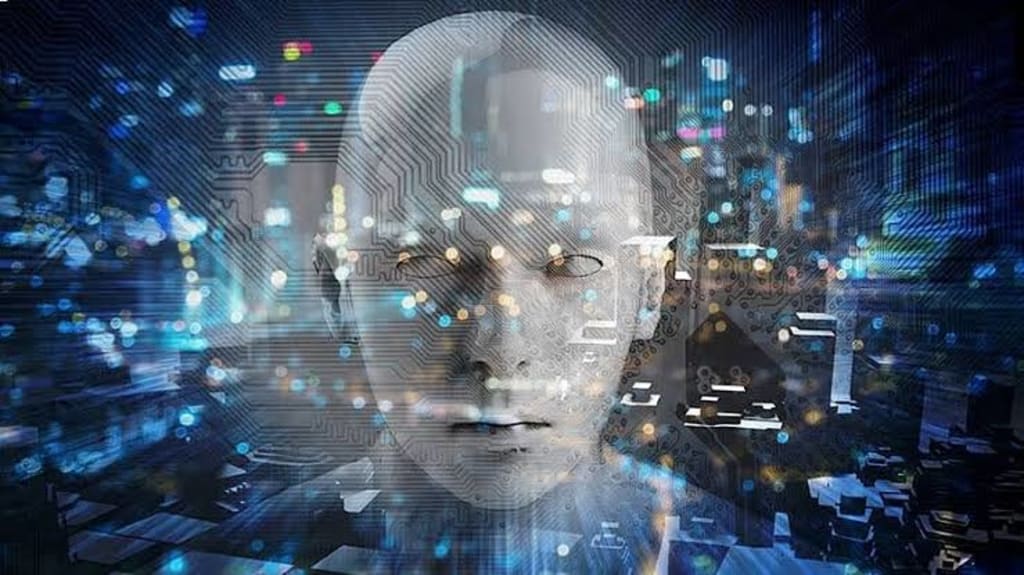Shaping Tomorrow
The Impact of Artificial Intelligence Across All Industries

Introduction
In the not-too-distant future, a wave of technological revolution swept across industries, forever changing the landscape of human endeavor. Artificial intelligence (AI), once confined to the realms of science fiction, emerged as a powerful force, bringing unparalleled advancements and transforming numerous sectors. This is the story of how AI reshaped our world.
Healthcare Transformation :
In the field of healthcare, AI became a beacon of hope. With its ability to process vast amounts of medical data and detect patterns, AI algorithms revolutionized diagnostics. Radiologists partnered with AI assistants that swiftly analyzed medical images, enhancing accuracy and reducing the time required for critical diagnoses. AI also enabled personalized medicine, as algorithms scrutinized patient data to tailor treatments and predict outcomes. However, ethical concerns emerged, urging us to strike a balance between reliance on AI and preserving the human touch in healthcare. AI has facilitated the development of more accurate diagnostics, personalized treatment plans, and improved patient care. AI algorithms can analyze vast amounts of medical data, detect patterns, and provide insights that assist doctors in making better-informed decisions. Additionally, AI-powered robotics have been employed in surgery, enabling minimally invasive procedures and reducing risks.
Finance Reinvented:
The finance industry embraced AI with open arms. Intelligent algorithms were harnessed for fraud detection, rapidly scanning massive datasets for suspicious patterns and preventing financial losses. Trading floors evolved as AI-powered trading bots executed transactions with lightning speed, utilizing the predictive analysis to optimize investment decisions. Nevertheless, challenges arose, demanding regulatory frameworks to curb algorithmic biases and maintain fairness in a world increasingly driven by machine intelligence. AI has revolutionized various aspects, such as fraud detection, risk assessment, and algorithmic trading. Machine learning algorithms can quickly analyze large volumes of financial data to identify fraudulent transactions or predict market trends. Moreover, chatbots and virtual assistants powered by AI have enhanced customer service and streamlined financial processes.
Revolution on Wheels:
Transportation witnessed a seismic shift with the integration of AI. Autonomous vehicles emerged, promising safer roads and efficient travel. With sophisticated sensors and machine learning algorithms, self-driving cars navigated complex roadways, reducing accidents caused by human error. AI-powered traffic management systems optimized flow, easing congestion and reducing travel times. Yet, the road ahead was not without obstacles, as ethical dilemmas arose when programming algorithms to make life-or-death decisions, calling for a delicate balance between human values and technological advancements.
Manufacturing Reimagined:
AI unleashed a new era in manufacturing, as intelligent robots and systems transformed production processes. Machines seamlessly collaborated with human workers, enhancing efficiency and productivity. AI-driven predictive maintenance algorithms minimized downtime, optimizing resource utilization and reducing costs. However, concerns over job displacement and the future of work loomed large. Emphasizing the importance of upskilling and reskilling programs, industry leaders sought to create a harmonious coexistence between humans and machines. The manufacturing industry has witnessed significant advancements through the implementation of AI. Robotics and automation systems powered by AI algorithms have improved productivity, reduced errors, and enhanced safety. AI-enabled predictive maintenance can anticipate equipment failures, minimizing downtime and optimizing production schedules. Additionally, AI-driven supply chain management has enhanced inventory control, demand forecasting, and logistics optimization.
Conclusion:
Artificial intelligence cast its spell across industries, leaving an indelible mark on our world. Healthcare, finance, transportation, and manufacturing underwent profound transformations, fueled by the power of AI. While these advancements brought unprecedented benefits, they also raised ethical and societal questions that demanded thoughtful consideration. As we embrace the potential of AI, we must ensure it remains a tool that augments human capabilities rather than replacing them. Striking a delicate balance between technological progress and human values will shape the future, enabling us to harness the full potential of AI for the betterment of humanity. By cultivating a society that embraces the ethical use of AI, we can build a future where innovation thrives, industries flourish, and human potential soars to new heights.





Comments (1)
Wow